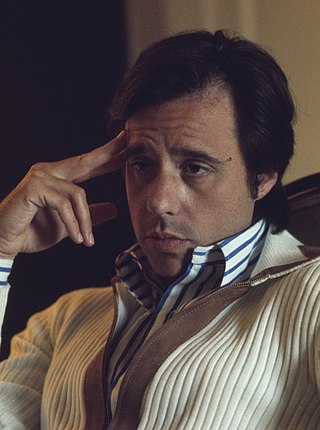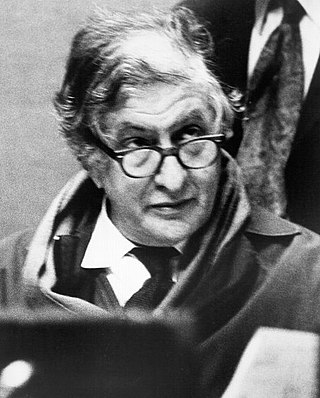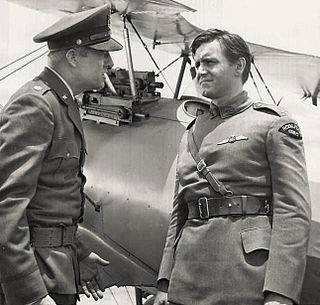Related Research Articles

Sir Alfred Joseph Hitchcock was an English film director. He is widely regarded as one of the most influential figures in the history of cinema. In a career spanning six decades, he directed over 50 feature films, many of which are still widely watched and studied today. Known as the "Master of Suspense", Hitchcock became as well known as any of his actors thanks to his many interviews, his cameo appearances in most of his films, and his hosting and producing the television anthology Alfred Hitchcock Presents (1955–65). His films garnered 46 Academy Award nominations, including six wins, although he never won the award for Best Director, despite five nominations.

Vivien Leigh, styled as Lady Olivier after 1947, was a British actress. She won the Academy Award for Best Actress twice, for her performances as Scarlett O'Hara in Gone with the Wind (1939) and Blanche DuBois in the film version of A Streetcar Named Desire (1951), a role she had also played on stage in London's West End in 1949. She also won a Tony Award for her work in the Broadway musical version of Tovarich (1963). Although her career had periods of inactivity, in 1999 the American Film Institute ranked Leigh as the 16th-greatest female movie star of classic Hollywood cinema.

Peter Bogdanovich was an American director, writer, actor, producer, critic, and film historian. He started his career as a film critic for Film Culture and Esquire before becoming a prominent filmmaker as part of the New Hollywood movement. He received accolades including a BAFTA Award and Grammy Award, as well as nominations for two Academy Awards and two Golden Globe Awards.

Claude Henri Jean Chabrol was a French film director and a member of the French New Wave group of filmmakers who first came to prominence at the end of the 1950s. Like his colleagues and contemporaries Jean-Luc Godard, François Truffaut, Éric Rohmer and Jacques Rivette, Chabrol was a critic for the influential film magazine Cahiers du cinéma before beginning his career as a film maker.

Bernard Herrmann was an American composer and conductor best known for his work in composing for films. As a conductor, he championed the music of lesser-known composers. He is widely regarded as one of the greatest film composers. Alex Ross writes that "Over four decades, he revolutionized movie scoring by abandoning the illustrative musical techniques that dominated Hollywood in the 1930s and imposing his own peculiar harmonic and rhythmic vocabulary."

Frederick George Peter Ingle Finch was an English-Australian actor of theatre, film and radio.
William Theodore Kotcheff is a Canadian director and producer of film and television. He is known for directing such films as the seminal Australian New Wave picture Wake in Fright (1971), the Mordechai Richler adaptations The Apprenticeship of Duddy Kravitz (1974) and Joshua Then and Now (1985), the original Rambo film First Blood (1982), and the comedies Fun with Dick and Jane (1977), North Dallas Forty (1979), and Weekend at Bernie's (1989).
Peter Cowie is a British film historian and author of more than thirty books on film. In 1963 he was the founder/publisher and general editor of the annual International Film Guide, a survey of worldwide film production, which he continued to edit for forty years.

Kitchen sink realism is a British cultural movement that developed in the late 1950s and early 1960s in theatre, art, novels, film and television plays, whose protagonists usually could be described as "angry young men" who were disillusioned with modern society. It used a style of social realism which depicted the domestic situations of working-class Britons, living in cramped rented accommodation and spending their off-hours drinking in grimy pubs, to explore controversial social and political issues ranging from abortion to homelessness. The harsh, realistic style contrasted sharply with the escapism of the previous generation's so-called "well-made plays".
James David Rudkin is an English playwright.

David Mercer was an English dramatist.
Alexander Walker was a British film critic who wrote for the London Evening Standard from 1960 to the end of his life. He wrote 20 books.
Ronald Henry Pember was an English actor, stage director and dramatist. In a career stretching over thirty years, he was a character actor in British television productions in the 1970s and 1980s, usually in smaller parts or as a support playing a worldly-wise everyman.

Rodney Ackland was an English playwright, actor, theatre director and screenwriter.

Norman Nathan Lloyd was an American actor, producer, director, and centenarian with a career in entertainment spanning nearly a century. He worked in every major facet of the industry, including theatre, radio, television, and film, with a career that started in 1923. Lloyd's final film, Trainwreck, was released in 2015, after he turned 100. Lloyd remains the longest-lived male actor from Classic Hollywood.

The Orson Welles Cinema was a movie theater at 1001 Massachusetts Avenue in Cambridge, Massachusetts that operated from 1969 to 1986. Showcasing independents, foreign films and revivals, it became a focal point of the Boston-Cambridge film community.

Kenneth William Michael Haigh was an English actor. He first came to public recognition for playing the role of Jimmy Porter in the play Look Back in Anger in 1956 opposite Mary Ure in London's West End theatre. Haigh's performance in the role on stage was critically acclaimed as a prototype dramatic working-class anti-hero in post-Second World War English drama.
Andrew Timothy Birkin is an English screenwriter and director.

Hitchcock/Truffaut is a 1966 book by François Truffaut about Alfred Hitchcock, originally released in French as Le Cinéma selon Alfred Hitchcock.
John Gillett MBE (1925–1995) was a British film critic and researcher whose career at the British Film Institute spanned over 44 years. He was also a programmer for the National Film Theatre on the works of Buster Keaton, early Russian cinema and Japanese cinema, to name a few. He wrote film reviews for The Monthly Film Bulletin. With Ian Christie, he edited Futurism/Formalism/FEKS: 'Eccentrism' and Soviet Cinema 1918-1936. He was also an editor of Yasujiro Ozu: A Critical Anthology, with David Wilson.
References
- ↑ Biography on filmreference.com.
- ↑ Author information from Anger and After, revised pelican edn 1963.
- ↑ Who's Who 2016.
- ↑ "Berlinale 1969: Juries". berlinale.de. Retrieved 6 March 2010..
- ↑ "John Russell Taylor" at Encyclopædia Britannica Online , All about Oscar. Retrieved 7 May 2008.
- ↑ John Russell Taylor. Hitch: The Life and Times of Alfred Hitchcock, Pantheon Books, 1978, dust jacket, ISBN 0-394-49996-4.
- John Russell Taylor (1969). The Angry Theatre: New British Drama . Hill & Wang. ISBN 978-0-8090-2663-0. (Revised and expanded edition of Anger and After: A Guide to the New British Drama.)